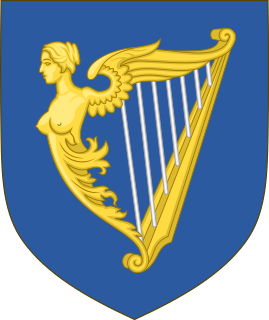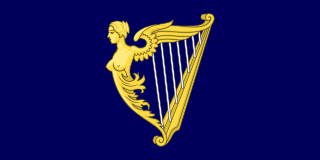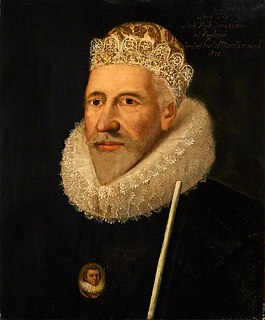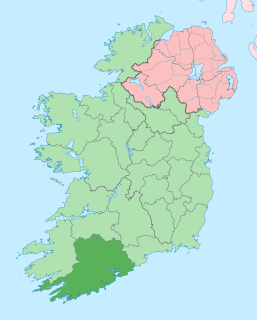
The Irish House of Commons was the lower house of the Parliament of Ireland that existed from 1297 until 1800. The upper house was the House of Lords. The membership of the House of Commons was directly elected, but on a highly restrictive franchise, similar to the Unreformed House of Commons in contemporary England and Great Britain. In counties, forty-shilling freeholders were enfranchised whilst in most boroughs it was either only the members of self-electing corporations or a highly-restricted body of freemen that were able to vote for the borough's representatives. Most notably, Catholics were disqualified from sitting in the Irish parliament from 1691, even though they comprised the vast majority of the Irish population. From 1728 until 1793 they were also disfranchised. Most of the population of all religions had no vote. The vast majority of parliamentary boroughs were pocket boroughs, the private property of an aristocratic patron. When these boroughs were disfranchised under the Act of Union, the patron was awarded £15,000 compensation for each.

The Kingdom of Ireland was a client state of England and then of Great Britain that existed from 1542 until 1800. It was ruled by the monarchs of England and then of Great Britain in personal union with their other realms. The kingdom was administered from Dublin Castle nominally by the King or Queen, who appointed a viceroy to rule in their stead. It had its own legislature, peerage, legal system, and state church.

Anthony Ashley Cooper, 1st Earl of Shaftesbury PC, known as Anthony Ashley Cooper from 1621 to 1630, as Sir Anthony Ashley Cooper, 2nd Baronet from 1630 to 1661, and as The Lord Ashley from 1661 to 1672, was a prominent English politician during the Interregnum and during the reign of King Charles II. A founder of the Whig party, he is also remembered as the patron of John Locke.
Poynings' Law or the Statute of Drogheda was a 1494 Act of the Parliament of Ireland which provided that the parliament could not meet until its proposed legislation had been approved both by Ireland's Lord Deputy and Privy Council and by England's monarch and Privy Council. It was a major grievance in 18th-century Ireland, was amended by the Constitution of 1782, rendered moot by the Acts of Union 1800, and repealed by the Statute Law Revision (Ireland) Act, 1878.

Sir Edward Poynings KG was an English soldier, administrator and diplomat, and Lord Deputy of Ireland under King Henry VII of England.

The Parliament of England was the legislature of the Kingdom of England, existing from the early 13th century until 1707, when it merged with the Parliament of Scotland to become the Parliament of Great Britain after the political union of England and Scotland created the Kingdom of Great Britain.

The Kingdom of England was a sovereign state on the island of Great Britain from 927, when it emerged from various Anglo-Saxon kingdoms until 1707, when it united with Scotland to form the Kingdom of Great Britain.
William Vesey-FitzGerald, 2nd Baron FitzGerald and Vesey was an Irish statesman.

Sir John Perrot served as Lord Deputy to Queen Elizabeth I of England during the Tudor conquest of Ireland. He died in custody in the Tower of London after conviction on charges of high treason for his conduct in that office. It was speculated that he was an illegitimate son of Henry VIII.

James Ley, 1st Earl of Marlborough was an English judge and politician who sat in the House of Commons at various times between 1597 and 1622. He was Lord Chief Justice of the King's Bench in Ireland and then in England and was Lord High Treasurer from 1624 to 1628. On 31 December 1624, James I created him Baron Ley, of Ley in the County of Devon, and on 5 February 1626, Charles I created him Earl of Marlborough. Both titles became extinct upon the death of the 4th Earl of Marlborough in 1679.

The Privy Council of England, also known as HisMajesty's Most Honourable Privy Council, was a body of advisers to the sovereign of the Kingdom of England. Its members were often senior members of the House of Lords and the House of Commons, together with leading churchmen, judges, diplomats and military leaders.
Events from the 1480s in England. This decade marks the beginning of the Tudor period.
Events from the 1250s in England.

Sir John Puckering was a lawyer, politician, Speaker of the English House of Commons, and Lord Keeper from 1592 until his death.

The Instrument of Government was a constitution of the Commonwealth of England, Scotland and Ireland. Drafted by Major-General John Lambert in 1653, it was the first sovereign codified and written constitution in England.

The First Lord of the Admiralty, or formally the Office of the First Lord of the Admiralty, was the political head of the Royal Navy who was the government's senior adviser on all naval affairs and responsible for the direction and control of Admiralty Department as well as general administration of the Naval Service of the United Kingdom, that encompassed the Royal Navy, the Royal Marines and other services. It was one of the earliest known permanent government posts. Apart from being the political head of the Royal Navy the post holder simultaneously held the title of the President of the Board of Commissioners for Exercising the Office of Lord High Admiral. The office of First Lord of the Admiralty existed from 1628 until it was abolished when the Admiralty, Air Ministry, Ministry of Defence and War Office were all merged to form the new Ministry of Defence in 1964.
Robert Preston, 1st Viscount Gormanston (1435–1503) was an Irish peer and statesman of the fifteenth century who held the offices of Deputy to the Lord Chancellor of Ireland and Lord Deputy of Ireland.
The Chorley by-election was a Parliamentary by-election. It returned one Member of Parliament to the House of Commons of the United Kingdom, elected by the first past the post voting system. Although it was a safe Unionist seat which was held, the reduction in the Unionist majority was notable.
Garret Moore, 1st Viscount Moore PC (I) was an Anglo-Irish politician and peer.
The chief governor was the senior official in the Dublin Castle administration, which maintained English and British rule in Ireland from the 1170s to 1922. The chief governor was the viceroy of the English monarch and presided over the Privy Council of Ireland. In some periods he was in effective charge of the administration, subject only to the monarch in England; in others he was a figurehead and power was wielded by others.














